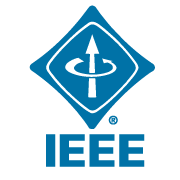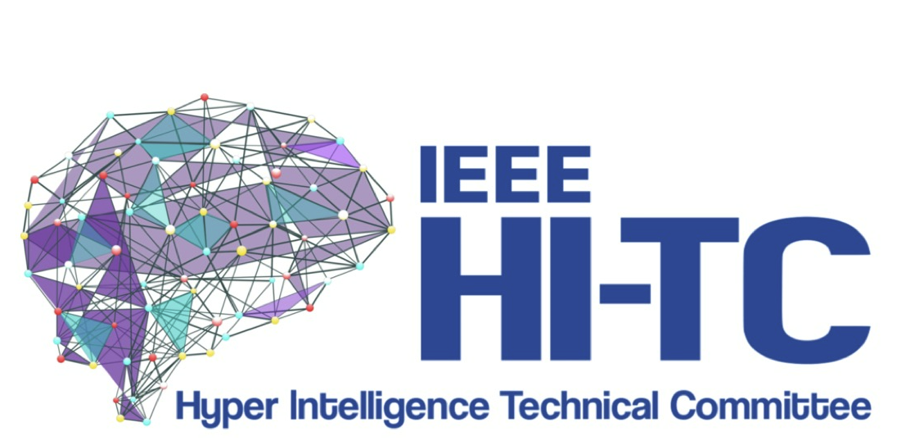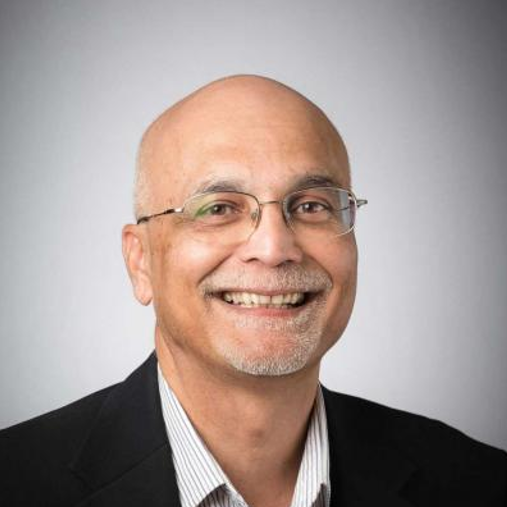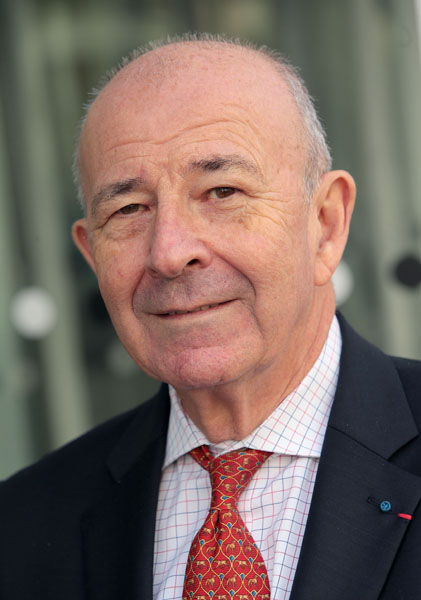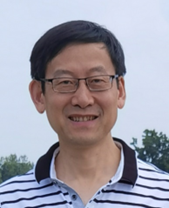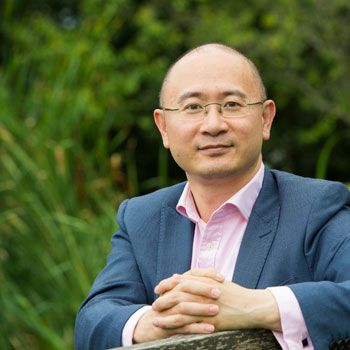|
Congress Keynotes |
|
M. Jamal Deen McMaster University, Canada Abstract:
Several of the grand challenges in engineering for current and future societal needs require smart software coupled with sensing systems, examples being smart sensors, smart homes and smart software. In the health area, we will discuss some major healthcare issues related to aging and several examples of smart systems – sensors and smart homes. We will discuss the use of sensor systems to measure your walking signals and sleep quality, and their customization to an individual’s needs. Smart sensors are also used for a living diary and in a smart home server that functions as the “brain” of a smart medical home. In all these applications, smart software or artificial intelligence (AI) techniques are a key enabler for their user-friendly, accurate and cost-effective use. Further, the use of data analytics and AI is important to provide customizable information to the users based on data collected from a variety of sensors. In addition, we will discuss some of the trends and opportunities in smart sensors for healthcare. Finally, we will discuss some applications of smart sensors and data analytics, and what are some important research issues in sensors, home networks, autonomic systems and healthcare in the context of a futuristic smart medical home. Bio: Dr. M. Jamal Deen is Distinguished University Professor (highest rank of a Professor in Canada), and Director of the Micro- and Nano-Systems Laboratory, McMaster University. As an educator, he won the Ham Education Medal from IEEE Canada (highest award for educators), the McMaster University President’s Award for Excellence in Graduate Supervision, and MSU Macademics’ Lifetime Achievement Award for his exceptional dedication to teaching and significant contribution to student life, the community at large, and academia (highest award for exceptional lifetime teaching at McMaster University voted by the students). Erol Gelenbe Institute of Theoretical & Applied Informatics, Polish Academy of Sciences, Poland Abstract:
Typically in computer science, cybersecurity is addressed with a Maginot Line mentality, through encryption, passwords, firewalls, provably secure systems, and so on, making the usage of computer systems, web sites, services etc., more cumbersome and tedious. Yet every day we hear of some recent cyberattack that has been at least partially successful, if not even worse. In this talk we will emphasize the dynamic aspects of cybersecurity without which it is impossible to defend oneself from cyberattacks. The dynamic aspect, focused on dynamic attack detection, and dynamic reaction to cyberattacks, using machine learning and on-line dynamic system control to rapidly recover from attacks, will be illustrated with our recent experimental research results from several EU Horizon 2020 projects. Bio: Erol GELENBE, FIEEE ’86, FACM’01, FIFIP’19, FRSS’20 is Professor in the Institute of Theoretical & Applied Informatics, Polish Academy of Sciences since 2017, and currently leads research on Cybersecurity & Performance Analysis, funded by the EU Horizon DOSS Project. Awarded the ACM SIGMETRICS 2008 Life-Time Award for pioneering theoretical and experimental work on computer and network system performance, Erol graduated from the Middle East Technical University (Ankara), holds a PhD from New York University (1970) and the Doctor of Science Degree from Sorbonne University (1973) in Paris. He was elected Fellow of the French Nanational Academy of Technologies, Foreign Fellow of the National Science Academies of Belgium and Poland, Fellow of the Turkish Science Academy, and Honorary Fellow of the Science Academy of Hungary and of the Islamic Academy of Sciences, he has received three “honoris causa” doctorates from the University of Roma II (Italy) in 1996, Bogazici University, Istanbul (Turkey) in 2004, and the University of Liege (Belgium) in 2006. Recipient of scientific prizes in France, Turkey, US, UK, and Iran, he graduated 95 PhDs, and has held chaired professorships at leading institutions including Univ. of Liege (Belgium) in 1974-79, Univ. Paris-Saclay (France) in 1979-86, University Paris-Descartes (France) in 1986-1992, NJIT (USA) in 1992-93, Duke University (USA) in 1993-98, University of Central Florida (USA) in 1998-03, and Imperial College (UK) in 2003-20. Participating actively in EU Research Programs since 2003, including FP5, FP6, FP7, H2020, he was funded in the USA by NSF and ONR, and by EPSRC in the UK. He was awarded French honors of Chevalier de la Legion d'Honneur (2015) and Commandeur du Mérite (2019), Italy awarded him Commendatore al Merito della Repubblica (2005) and Grande Ufficiale della Stella d'Italia (2007), and Belgium Awarded him Commandeur de l’Ordre de la Couronne (2022). He recently received the Best Paper Awards at IEEE MASCOTS 2023 (Oct. 16, 2023) and IEEE Trustcom 2023 (Nov. 2, 2023).
Dou Shen Baidu AI Cloud Group, China Abstract:
Large pre-trained models, especially the popular Large Language Models such as GPT and Baidu's ERNIE, have changed the way of adopting AI in real-world applications. In this talk, we will share the best practice of LLM applications we are seeing over Baidu's Qianfan platform through a few examples and explore the ways to make the best use of LLM effectively and efficiently. Bio: Dr. Shen received a Ph.D. from the Hong Kong University of Science and Technology, and currently serves as executive vice president of Baidu and the president of Baidu AI Cloud Group. Dr. Shen joined Baidu in 2012 and has served in various management roles, including web search, display advertising, the financial services group and mobile products. Dr. Shen has published more than 70 papers in international conferences and journals, and held multiple patents on Internet search and computational advertising. Currently, he serves as the Vice President of SIGKDD China Chapter.
Schahram Dustdar Technische Universitat Wien, Austria Abstract:
A captivating set of hypotheses from the field of neuroscience suggests that human and animal brain mechanisms result from few powerful principles. If proved to be accurate, these assumptions could open a deep understanding of the way humans and animals manage to cope with the unpredictability of events and imagination. Modern distributed systems also deal with uncertain scenarios, where environments, infrastructures, and applications are widely diverse. In the scope of IoT-Edge-Fog-Cloud computing, leveraging these neuroscience-inspired principles and mechanisms could aid in building more flexible solutions able to generalize over different environments. Bio: Schahram Dustdar is a Full Professor of Computer Science at the TU Wien, heading the Research Division of Distributed Systems, Austria. He holds several honorary positions: University of California (USC) Los Angeles; Monash University in Melbourne, Shanghai University, Macquarie University in Sydney, University Pompeu Fabra, Barcelona, Spain. From Dec 2016 until Jan 2017 he was a Visiting Professor at the University of Sevilla, Spain and from January until June 2017 he was a Visiting Professor at UC Berkeley, USA. Kun Yang University of Essex, UK Abstract:
With 5G mobile communication systems being commercialized and deployed worldwide, research into next-generation communication systems (i.e., 6G) has started since 2020. Native intelligence is essential for 6G to deliver its promises of being faster, greener and smarter. This talk starts with a brief introduction of 6G mobile communication systems, and then looks into how computation, and in particular artificial intelligence (AI) and machine learning (ML), comes into play in 6G from different perspectives. The talk firstly looks into how ML is utilized for data-driven end-to-end communication system design that revolutionizes the traditional modular design. Then this talk introduces some interesting new trends in mobile communication networks such as semantic communications, digital twin networks, and ISAC (Integrated Sensing and Communication), all from the perspective of how computation plays a role in supporting native intelligence of modern communication systems. Bio: Kun Yang received his PhD from the Department of Electronic & Electrical Engineering of University College London (UCL), UK. He is currently a Chair Professor in the School of Computer Science & Electronic Engineering, University of Essex, UK, leading the Network Convergence Laboratory (NCL). He is also an affiliated professor of UESTC. His main research interests include wireless networks and communications, future Internet and edge computing. In particular he is interested in energy aspects of future communication systems such as 6G, promoting energy self-sustainability via both energy efficiency (green communications and networking) and energy harvesting (wireless charging). He has managed research projects funded by UK EPSRC, EU FP7/H2020, and industries. He has published 400+ papers and filed 20 patents. He serves on the editorial boards of a number of IEEE journals (e.g., IEEE ComMag, TNSE, WCL). He is a Deputy Editor-in-Chief of IET Smart Cities Journal. He has been a Judge of GSMA GLOMO Award at World Mobile Congress – Barcelona since 2019. He was a Distinguished Lecturer of IEEE ComSoc (2020-2021). He is a Member of Academia Europaea (MAE), a Fellow of IEEE, a Fellow of IET and a Distinguished Member of ACM. Dusit Tao Niyato Nanyang Technological University, Singapore Abstract:
The rapid development of Artificial Intelligence Generated Content (AIGC) has brought daunting challenges regarding service latency, security, and trustworthiness. Recently, researchers presented the edge AIGC paradigm, which effectively optimizes service latency by distributing AIGC services to edge devices. However, AIGC products are still unprotected and vulnerable to tampering and plagiarism. Moreover, as a kind of online non-fungible digital property, the free circulation of AIGC products is hindered by the lack of trustworthiness in open networks. In this talk, we first present an overview of AIGC and its lifecycle, including content creation, verification, distribution, and storage. Then, we highlight the security challenges in AIGC, and for the first time, we present a blockchain-empowered framework to manage the lifecycle of edge AIGC products. Specifically, leveraging fraud proof, we propose a protocol to protect the ownership and copyright of AIGC, called Proof-of-AIGC. We then design an incentive mechanism to guarantee the legitimate and timely execution of funds-AIGC ownership exchanges among anonymous users. Furthermore, we present the design of a blockchain-aided semantic communication framework for AIGC services to facilitate interactions between the physical and virtual domains among service providers and edge devices. We also design a semantic defense scheme that uses the blockchain and zero-knowledge proofs to check the authenticity of semantic data transformations. Finally, we discuss major research directions of blockchain in AIGC services. Bio: Dusit Niyato is currently a President's Chair Professor in Computer Science and Engineering in the School of Computer Science and Engineering, Nanyang Technological University, Singapore. He received B.E. from King Mongkuk's Institute of Technology Ladkrabang (KMITL), Thailand in 1999 and Ph.D. in Electrical and Computer Engineering from the University of Manitoba, Canada in 2008. Dusit's research interests are in the areas of distributed collaborative machine learning, Internet of Things (IoT), edge intelligent metaverse, mobile and distributed computing, and wireless networks. Dusit won the 2011 IEEE Communications Society Fred W. Ellersick Prize Paper Award and the IEEE Computer Society Middle Career Researcher Award for Excellence in Scalable Computing in 2021 and Distinguished Technical Achievement Recognition Award of IEEE ComSoc Technical Committee on Green Communications and Computing 2022. Dusit is serving as Editor-in-Chief of IEEE Communications Surveys and Tutorials, an area editor of IEEE Transactions on Vehicular Technology, editor of IEEE Transactions on Wireless Communications, associate editor of IEEE Internet of Things Journal, IEEE Transactions on Mobile Computing, IEEE Wireless Communications, IEEE Network, and ACM Computing Surveys. He was a guest editor of IEEE Journal on Selected Areas on Communications. He was a Distinguished Lecturer of the IEEE Communications Society for 2016-2017. He was named the 2017-2022 highly cited researcher in computer science. He is a Fellow of IEEE and a Fellow of IET. Sai Gu The University of Warwick, UK Abstract:
The presentation will take you on a brief journey of a century old chemical engineering: how chemical engineers have made profound impact on our life and economic development; how chemical engineering will be transformed by digital revolution. Bio: Professor Sai Gu is the Fellow of Royal Academy of Engineering, UK and the Deputy Pro-Vice-Chancellor (China) of University of Warwick. He obtained a PhD in Material Modelling from the University of Nottingham and also did his post-doc research at the University of Cambridge. His main research directions are bioenergy, carbon capture, materials, digital technology. And Professor Gu is an advocate of digital technologies for chemical engineering, pioneering the development of Industry 6th Sense technologies. He has established the Centre for Connected Plants of the Future to bring together multi-disciplinary expertise cross the University of Surrey, exploring the development of technology-driven innovation for chemical industry. He has been leading the EPSRC project “Stepping towards the industrial 6th sense”.
Sam Kwong Lingnan University, Hong Kong SAR Abstract:
In June 6th 2016, Cisco released the White paper, VNI Forecast and Methodology 2015-2020, reported that 82 percent of Internet traffic will come from video applications such as video surveillance, content delivery network, so on by 2020. It also reported that Internet video surveillance traffic nearly doubled, Virtual reality traffic quadrupled, TV grew 50 percent and similar increases for other applications in 2015. The annual global traffic will first time exceed the zettabyte(ZB;1000 exabytes[EB]) threshold in 2016, and will reach 2.3 ZB by 2020. It implies that 1.886ZB belongs to video data. Thus, in order to relieve the burden on video storage, streaming and other video services, researchers from the video community have developed a series of video coding standards. Among them, the most up-to-date is the High Efficiency Video Coding(HEVC) or H.265 standard, which has successfully halved the coding bits of its predecessor, H.264/AVC, without significant increase in perceived distortion. With the rapid growth of network transmission capacity, enjoying high definition video applications anytime and anywhere with mobile display terminals will be a desirable feature in the near future. Due to the lack of hardware computing power and limited bandwidth, lower complexity and higher compression efficiency video coding scheme are still desired. For higher video compression performance, the key optimization problems, mainly decision making and resource allocation problem, shall be solved. In this talk, I will present the most recent research results on machine learning, deep neural network and reinforcement based video coding. This is very different from the traditional approaches in video coding. We hope applying these intelligent techniques to vide coding could allow us to go further and have more choices in trading off between cost and resources. Bio: Sam Kwong received his B.Sc. degree from the State University of New York at Buffalo, M.A.Sc. in electrical engineering from the University of Waterloo in Canada, and Ph.D. from Fernuniversität Hagen, Germany. Before joining the City University of Hong Kong (CityU), he was a Diagnostic Engineer with Control Data Canada. He was responsible for designing diagnostic software to detect the manufacturing faults of the VLSI chips in the Cyber 430 machine. He later joined Bell-Northern Research as a Member of the Scientific Staff working on the Integrated Services Digital Network (ISDN) project. |
Organizations:
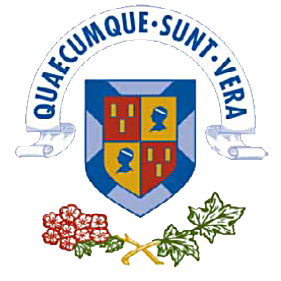 |
 |
|---|
Copyright@ Cybermatics 2023. Created and Maintained by Cybermatics 2023 Web Team.

